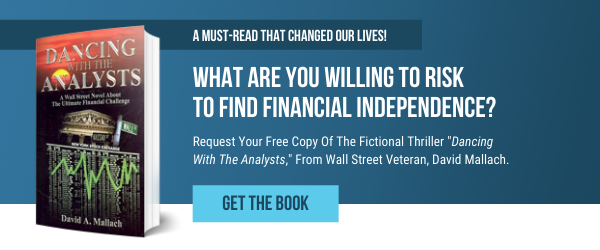Good investment advice doesn’t always come from financial advisors. It can come from anywhere, even from someone like John Madden. The legendary former Super Bowl-winning coach of the Oakland Raiders once commented on the so-called “prevent defense,” a strategy sometimes used by football teams to prevent the offense from completing a long pass or gain major yardage. It’s an unexciting “play-it-safe” defense that can sometimes backfire because the defense is essentially allowing its opponent to make short, on-the-ground gains, and gain the ability to score regardless.
Said Madden, “All a prevent defense does is prevent you from winning.”
Some financial advisors employ a “prevent defense” too. But they call it something else, like “downside protection” or “investing not to lose.” They refer to past performance of certain stocks and investment products as if that’s a sure way to predict the future. They’ll advise broad diversification, spreading out your money every which way to attempt to avoid risk. If you are nearing or in retirement, they might say, “You’ve made your money, it’s time to protect it,” and suggest parking it in that relatively “safe” 10 year government bond.
But is this really good advice? Or is it, like Madden’s advice, just a safe way to prevent you from winning? Sure, you might weather the downturns. But will you really benefit when the bear market turns bullish?
Let’s get one thing straight: investing – any type of investing – involves risk. If you’re truly risk averse, there might be better places to put your money, like your mattress.
But in my experience, there are VERY few investors that need a “prevent defense” style of investing. In fact, “investing not to lose” can have a terrible effect on your long-term retirement portfolio. Instead, investors need to be better educated about actual risk and how a financial advisor intends to help you accomplish what you need. Because risk is actually GOOD for you over the long term.
Yes it’s true, successful investing sometimes can and will be very uncomfortable for the investor. But THAT’s OK!! If you have a long time horizon (and by long, I don’t mean 25 years, but really anything over 5 years, which is most people), you need to know that you can benefit tremendously by investing with some risk. And by the way, if you are nearing or already retired, this means you too! The 65 year old today is going to live another 20 years on average. Just because you are retired doesn’t mean you shut off all the risk from your portfolio. Doing so can be devastating for your future income and real value of your portfolio.
Consider that relatively “safe” government or municipal bond you might be investing in. Let’s say you invested $1 million in a portfolio of 10-year bonds . . . a pretty common term that we see. While the interest may be enough to satisfy your lifestyle now, what happens as each year goes by? How much is that income payment going to be worth after inflation is factored in, since your payment is fixed at the same amount from the beginning, but just about everything else in your life has increased in cost?
And how about when the bond matures? One of the biggest selling points of bonds is security . . . that your principal amount will be returned to you at the end of the term. While that sounds great on the surface, just think for a moment: What is $1,000,000 going to be worth 10 years from now? Assuming a historical average annual inflation rate of 3.5%, that $1 million is actually worth roughly $700K.
Wait . . WHAT?! How safe is that? Actually, THAT sounds pretty risky to me.
A good financial advisor is one who considers the true goals and objectives of the individual client, and recommends a strategy that has the greatest potential to get them where they need to be. Good financial advice is NOT some “off-the-shelf” template that is entirely focused on appealing solely to what the client might want to hear. Now, that doesn’t mean an investment advisor should throw caution to the wind or roll the dice on every hot new stock that comes down the pike. It just means there’s a big difference between perceived “safe” investing and smart investing, and how, in the long run, smart investing is a much better way to reach that goal post.
Investing in securities is subject to risk and may involve loss of principal. No strategy assures success or
guarantees against loss.
The opinions voiced in this material are for general information only and are not intended to provide specific advice or recommendations for any individual.
Government bonds and Treasury bills are guaranteed by the US government as to the timely payment of principal and interest and, if held to maturity, offer a fixed rate of return and fixed principal value.
Municipal bonds are subject to availability and change in price. They are subject to market and interest rate risk if sold prior to maturity. Bond values will decline as interest rates rise. Interest income may be subject to the alternative minimum tax. Municipal bonds are federally tax-free but other state and local taxes may apply.

